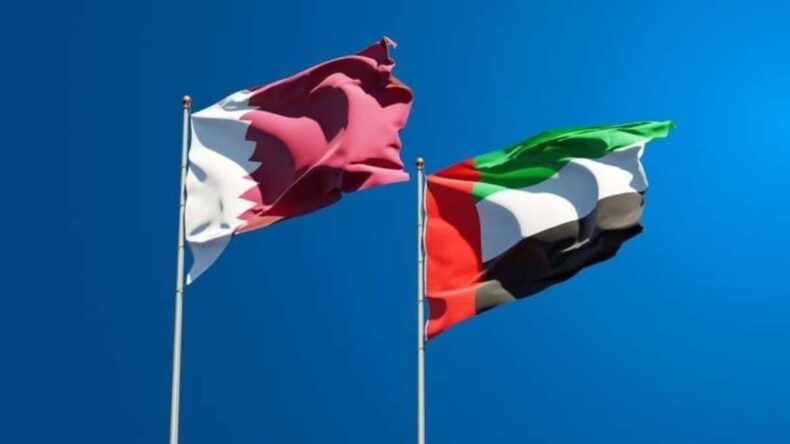Qatar and the United Arab Emirates (UAE) are restoring diplomatic relations and reopening embassies, years after Arab governments implemented a boycott of Doha that had fractured the Western-united Gulf Arab alliance.
In June 2017, four Gulf countries (Saudi Arabia, the United Arab Emirates, Bahrain, and Egypt) imposed a diplomatic and economic blockade on Qatar. They accused Qatar of supporting terrorism and of being too close to Iran, which they view as a regional rival.

The four countries claimed that Qatar was destabilizing the region and supporting extremist groups, including the Muslim Brotherhood and Hamas. They also accused Qatar of funding and supporting Al Jazeera, a media outlet that they say promotes extremist views and undermines the stability of the region.
In response, Qatar denied the allegations and accused the four countries of trying to undermine its sovereignty. Qatar has also said that the blockade has been harmful to its economy and to the well-being of its citizens.
The blockade has had a significant impact on Qatar, particularly in the areas of trade, transport, and tourism. However, Qatar has also managed to strengthen its ties with other countries and has continued to pursue its own foreign policy agenda.
The rebuilding of ties comes in the midst of a more extensive territorial push for compromise with Iran and Saudi Arabia concurring last month to restore relations following quite a while of antagonism, which undermined precariousness in the Gulf and stirred up the conflict in Yemen.
In Yemen, the Houthi movement and Saudi Arabia held a series of harmony talks this week, trading many prisoners, a huge harmony building move in a contention generally considered one of a few intermediary battles between Saudi Arabia and Iran. Further harmony talks are normal soon.
After a Saudi-led agreement to resolve the issue, Riyadh and Cairo were the first to re-appoint ministers to Doha in 2021, while Bahrain will resume political ties. After over three years of the boycott, an advancement was arrived at in January 2021, when the Gulf Collaboration Board (GCC) pioneers signed the Al-Ula Statement at the 41st GCC Culmination held in Saudi Arabia. The statement declared an end to the ban of Qatar and the rebuilding of strategic ties among GCC part states.
All countries, except for Bahrain, had reestablished exchange and travel joins with Qatar in mid-2021, when the United Arab Emirates had proposed continuing strategic ties would take time. Last year, relations between the United Arab Emirates and Qatar improved, and the two countries’ leaders met face to face.
The restoration of diplomatic ties between Qatar and the United Arab Emirates is a positive development that could contribute to stability in the Gulf region. The end of the blockade will have a significant impact on Qatar’s economy and well-being, and the resumption of ties will provide opportunities for increased cooperation and collaboration between the two countries. As the region continues to pursue a path towards compromise and reconciliation, it remains to be seen what further developments will take place in the coming months and years.













